
The clinical assistant professor at Feinberg School of Medicine outlined some of the major revisions proposed for the NMOSD diagnostic criteria presented at ECTRIMS 2025. [WATCH TIME: 8 minutes]

The clinical assistant professor at Feinberg School of Medicine outlined some of the major revisions proposed for the NMOSD diagnostic criteria presented at ECTRIMS 2025. [WATCH TIME: 8 minutes]

At ECTRIMS 2025, the professor of biomedical engineering at the University of Bern discussed virtual reality technologies for multiple sclerosis rehabilitation. [WATCH TIME: 3 minutes]

The staff neurologist at the Mellen Center for Multiple Sclerosis at Cleveland Clinic shared data from the phase 2 CALIPER trial of vidofludimus calcium in progressive MS presented at ECTRIMS 2025. [WATCH TIME: 7 minutes]

At ECTRIMS 2025, the William S. and Lois Stiles Edgerly Professor of Neurology at Yale School of Medicine discussed evolving insights into the disease pathogenesis of multiple sclerosis.
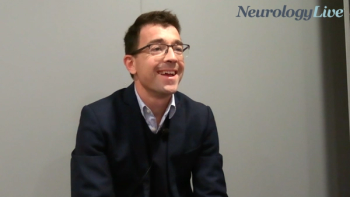
The neurologist at the Multiple Sclerosis Center of Catalonia talked about the challenges of defining seronegative in new diagnostic criteria for neuromyelitis optica spectrum disorder [WATCH TIME: 5 minutes]
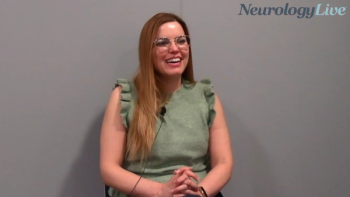
At ECTRIMS 2025, the associate professor at Pontifical Catholic University of Chile discussed global challenges in diagnosing multiple sclerosis early. [WATCH TIME: 5 minutes]
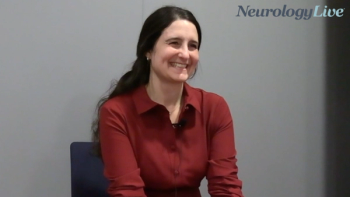
At ECTRIMS 2025, the staff neurologist at Cleveland Clinic’s Mellen Center for MS discussed developing a machine-learning tool to predict individualized risk of recurrent disease activity in multiple sclerosis. [WATCH TIME: 6 minutes]

Riley Bove, MD, an associate professor of neurology at the University of California, San Francisco, discussed phase 4 findings from the MINORE and SOPRANINO studies that examined ocrelizumab exposure during pregnancy and lactation in women with MS.

The professor of neurology at Barts and The London School of Medicine and Dentistry provided commentary on the ways to improve inclusion for multiple sclerosis clinical trials, factoring in patients with more advanced stages of disease. [WATCH TIME: 4 minutes]
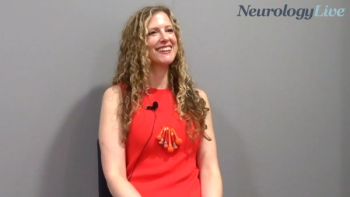
The assistant professor of neurology at Oregon Health & Science University discussed emerging evidence that aerobic exercise may enhance remyelination in patients with multiple sclerosis. [WATCH TIME: 5 minutes]

The pediatrician in chief at Johns Hopkins Children’s Center outlined the logistical, ethical, and regulatory hurdles of conducting pediatric MS trials, emphasizing the need for faster, more inclusive study designs to bring emerging therapies to clinic. [WATCH TIME: 5 minutes]

The professor of neurology at Barts and London School of Medicine and Dentistry discussed data from the phase 3b ORATORIO-HAND trial, which tested ocrelizumab’s effect in patients with more advanced primary progressive multiple sclerosis. [WATCH TIME: 5 minutes]

The pediatrician in chief at Johns Hopkins Children’s Center provided clinical insights on new findings demonstrating ocrelizumab’s potential in treating pediatric multiple sclerosis. [WATCH TIME: 4 minutes]

Gavin Giovannoni, MBBCh, PhD, FCP, FRCP, FRCPath, lead investigator of the phase 3 ORATORIO-HAND trial, provided comment on the results presented at ECTRIMS 2025, highlighting ocrelizumab’s therapeutic benefit in more advanced forms of multiple sclerosis.

Experts shared their clinical perspectives on trending topics in the treatment and management of multiple sclerosis at the 41st Congress of the European Committee for Treatment and Research in Multiple Sclerosis.

In this final episode, Riley Bove, MD, considers the next phase of MS research, emphasizing the need for innovative trial designs to address sequencing, discontinuation, and subgroup-specific treatment strategies.

In this clip, a multiple sclerosis expert reflects on how ofatumumab’s role has expanded since FDA approval in 2020, from first-line use to special populations, and what this means for daily practice.
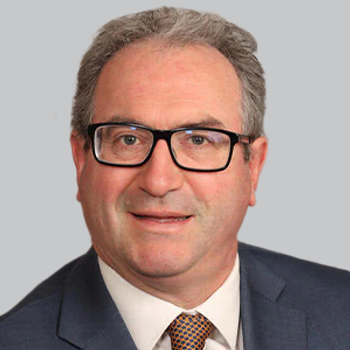
Final results from a phase 3 extension study presented at ECTRIMS 2025 demonstrated long-term efficacy and safety of ravulizumab-cwvz in patients with neuromyelitis optica spectrum disorder.

Riley Bove, MD, an associate professor of neurology at UCSF, breaks down the ARTIOS phase 3b trial results, highlighting the exceptionally low relapse rates, MRI outcomes, and safety findings in patients switching therapies.
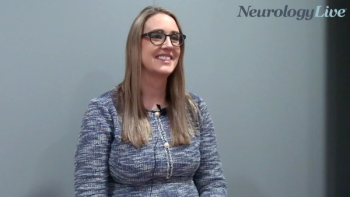
At ECTRIMS 2025, a staff neurologist at Cleveland Clinic discussed findings from an observational study on long-term safety risks of ocrelizumab in patients with multiple sclerosis. [WATCH TIME: 3 minutes]

Mind Moments®, a podcast from NeurologyLive®, brings you an exclusive interview with Daniel Ontaneda, MD, PhD. [LISTEN TIME: 19 minutes]

In episode 1, Bove explores how ofatumumab, a B-cell–depleting therapy, stands apart from fingolimod and fumarates, and why its mechanism may offer distinct treatment advantages.
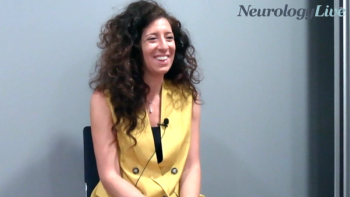
At ECTRIMS 2025, the postdoctoral research fellow at the University of Siena in Italy talked about how machine learning could classify multiple sclerosis into biologically distinct subtypes. [WATCH TIME: 5 minutes]

In a phase 3 trial presented at ECTRIMS 2025, ocrelizumab demonstrated noninferior relapse control compared with fingolimod in pediatric patients with relapsing-remitting multiple sclerosis.
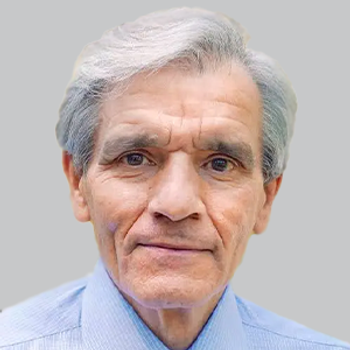
Primary results presented at ECTRIMS 2025 suggest that body-weight–adjusted high-dose of ocrelizumab did not further slow disease progression in patients with primary progressive multiple sclerosis.

A phase 2 study presented at ECTRIMS 2025 showed that autologous adipose-derived mesenchymal stem cell therapy was safe and effective in patients with relapsing-remitting multiple sclerosis.
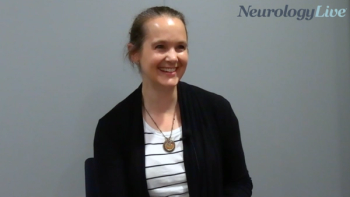
At ECTRIMS 2025, the associate professor of neurology at Yale School of Medicine talked about the 2024 diagnostic criteria, the preclinical phase of the disease, and progressive MS. [WATCH TIME: 3 minutes]
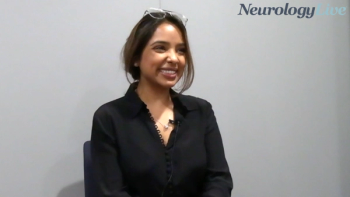
The executive director of The Sumaira Foundation (TSF) talked about TSF's research update and award ceremony held during ECTRIMS 2025. [WATCH TIME: 5 minutes]

Test your neurology knowledge with NeurologyLive®'s weekly quiz series, featuring questions on a variety of clinical and historical neurology topics. This week's topic is on the ECTRIMS Congress.

A global panel of experts revised NMOSD diagnostic criteria and updated disease classifications, distinguishing aquaporin-4 antibody–positive disease from related conditions such as MOGAD.